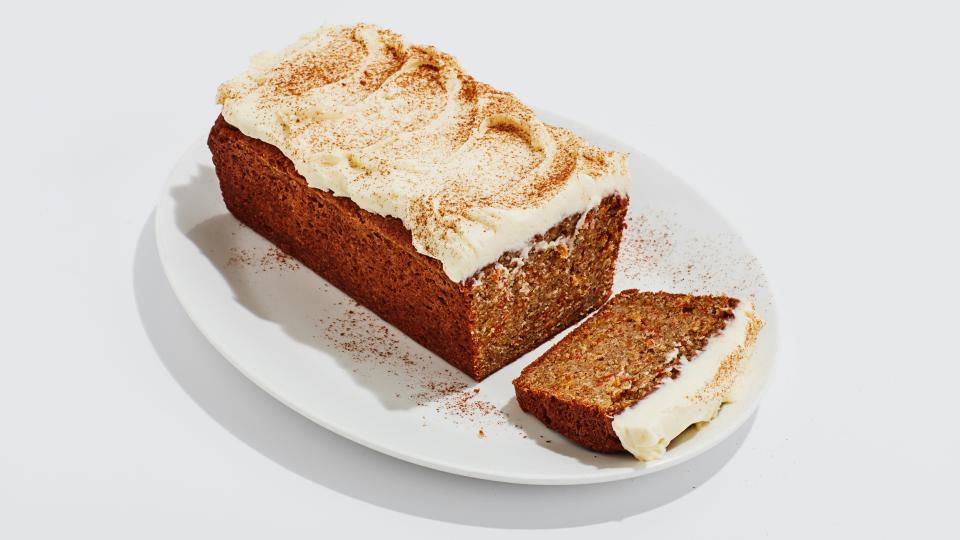The Secret to the Moistest Cake? Regular Ol' Vegetable Oil
No shade to butter, but I think it’s high time we acknowledge the power and versatility of regular old vegetable oil in cake baking. Don’t get me wrong: Butter is bomb. It’s what makes some of our favorite baked goods the exceptional, revelatory, life-altering things that they are. Croissants! Biscuits! Cookies! OH MY! But butter is not always better, and I’d like to take a few moments to tell you why.
Let’s kick things off with a discussion of moistness. (Apologies in advance if you can't stand that word, because I'm about to use it a lot.) When it comes to cakes, moistness is something to strive for—its what makes eating them so g-d pleasant! If you’ve ever had a dry cake, you understand the difference. Vegetable oil contributes moistness far more reliably, a result of the fact that oil remains liquid at room temperature while butter solidifies. Liquid contributes to the sensation of moistness, and therefore cakes made with oil often present as moister than their butter-based counterparts. (And will stay moist on the counter longer, too.)
Now let's talk about tenderness. Most of the time, you want to take a bite of cake and feel it almost fall apart in your mouth—that's tenderness. Again, a great way to understand tenderness is to consider its opposite: toughness. A cake becomes tough when too much gluten has been formed while mixing the batter. Gluten is formed when water interacts with flour during the mixing process. Because butter is actually comprised of around 80 percent fat and 20 percent liquid, that 20 percent of liquid will interact with the flour, form gluten, and contribute to the toughness of a cake. Vegetable oil, on the other hand, is pure fat. Fat inhibits gluten formation, and since there’s no water present in vegetable oil, there's less of a chance that you'll accidentally end up with a tough-crumbed cake. That said, every oil-based cake will still have a liquid component—the flour still needs to hydrate—so it is still possible to over-work this kind of batter and form an unappealing amount of gluten, and it's still important to be mindful of stirring too vigorously once your wet ingredients meet the dry.
Have I convinced you yet? Without any intervention on the part of the baker (a.k.a. YOU), your oil based cakes are already bound for supreme moistness and tenderness. (It's worth noting that olive oil performs in the same way, but definitely contributes a more pronounced—and sometimes awesome!—flavor.) Need more convincing? Give this ridiculously delish carrot loaf cake recipe a shot, and I think you’ll agree that vegetable oil deserves as much love as your beloved butter.


